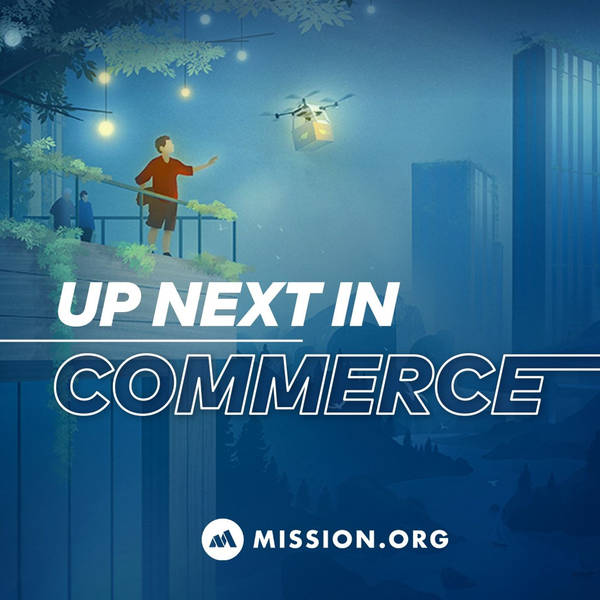
The Circular Economy: How Avery Dennison is Closing the Gap Between The Physical and Digital World with Max Winograd, VP of Connected Products
Efficiency, transparency, trust. These are all things that both businesses and consumers crave, but don’t always achieve. Especially not all with one solution. But thanks to digital identities, and the technology that’s coming out of Avery Dennison, that’s about to change.
Avery Dennison, a Fortune 500 global materials science company, is taking digital identities past the point of simple QR codes and RFID tags, and into a place where brands and consumers will be able to do more with individual products than ever before. We’re talking about a world where you can track the tiniest details of a product in shipment, like its exact origins to its temperature. And brands will have the ability to create more sustainable, reusable products that can learn from consumers each time they use and scan the digital identifiers, making it possible to adapt to changing consumer behavior in real time. To learn more about this new circular economy, I invited Max Winograd to the show, who serves as the VP of Connected Products at Avery Dennison and one of the founders of atma.io. On this episode of Up Next in Commerce, Max and I talked about all the ways that digital identities are already being used today, and what the future holds in terms of the connected experience that digital identities provide for brands and consumers. There are so many possibilities and upsides to the technology that Max and his team are creating at Avery Dennison, so keep your ears perked up for this awesome conversation!
Main Takeaways:
Individual Focus: Investments in innovative technology is helping make possible a future that will see consumers more in control of and informed about individual product journeys. Rather than simply tracking an item from the manufacturer to its final destination, consumers can get all the microdetails of a product. So whether you are expecting a shipment of produce or medical supplies and vaccines, Bluetooth, RFID, and other digital identity technology will make it possible to keep an eye on all of the minuscule details, like the temperature of the truck the product is being shipped in.So Long, Single-Use: How we package products is likely to undergo a fundamental change over the next few years. Rather than single-use anything, consumers will be encouraged and ultimately rewarded by having reusable individual containers that have unique digital IDs. So, rather than going to the store to buy a gallon of milk, so can have your own container, scan its QR code or other identifier at your local market, and the backend system will know who you are, what kind of milk you like (skim, oat, almond, etc.) and the exact amount, and will dispense that into your container.A Circle Is Round, It Has No End: Consumers are much more interested in taking part in a circular economy. There is more activity in re-commerce than ever before as customers turn to the resale marketplace. The need for product-level identification becomes crucial here because you can not only trace a product's origins, you can also pass along all of its information in the resale market, including selling it to be recycled and then have the recycled materials continue to be traced all along their journey.For an in-depth look at this episode, check out the full transcript below. Quotes have been edited for clarity and length.
---
Up Next in Commerce is brought to you by Salesforce Commerce Cloud. Respond quickly to changing customer needs with flexible Ecommerce connected to marketing, sales, and service. Deliver intelligent commerce experiences your customers can trust, across every channel. Together, we’re ready for what’s next in commerce. Learn more at salesforce.com/commerce
---
For a full transcript of this interview, click here.
